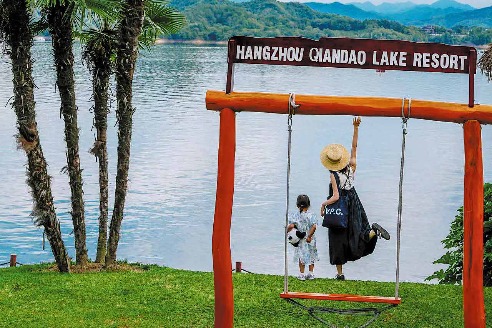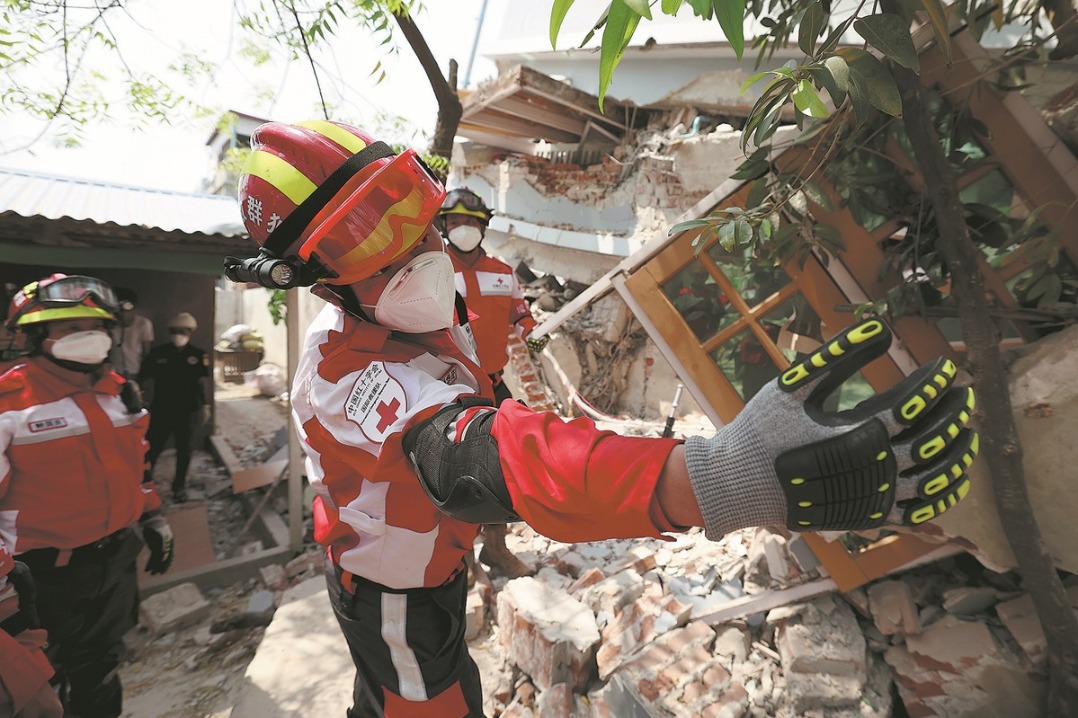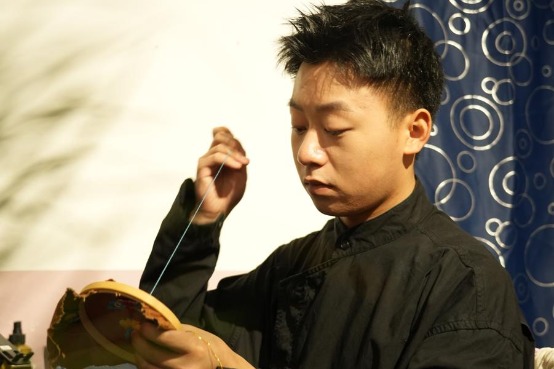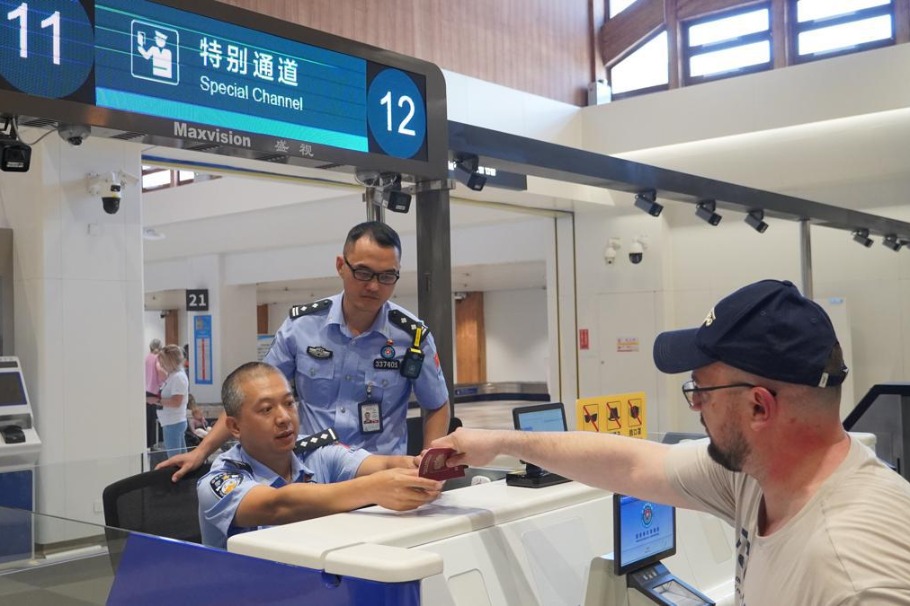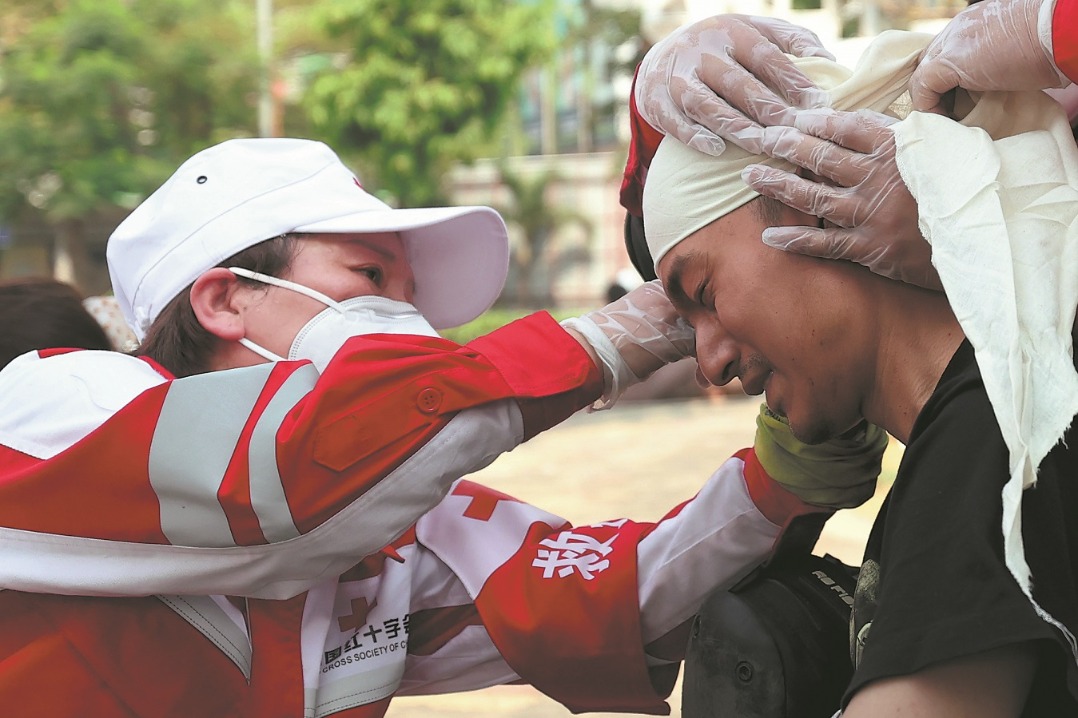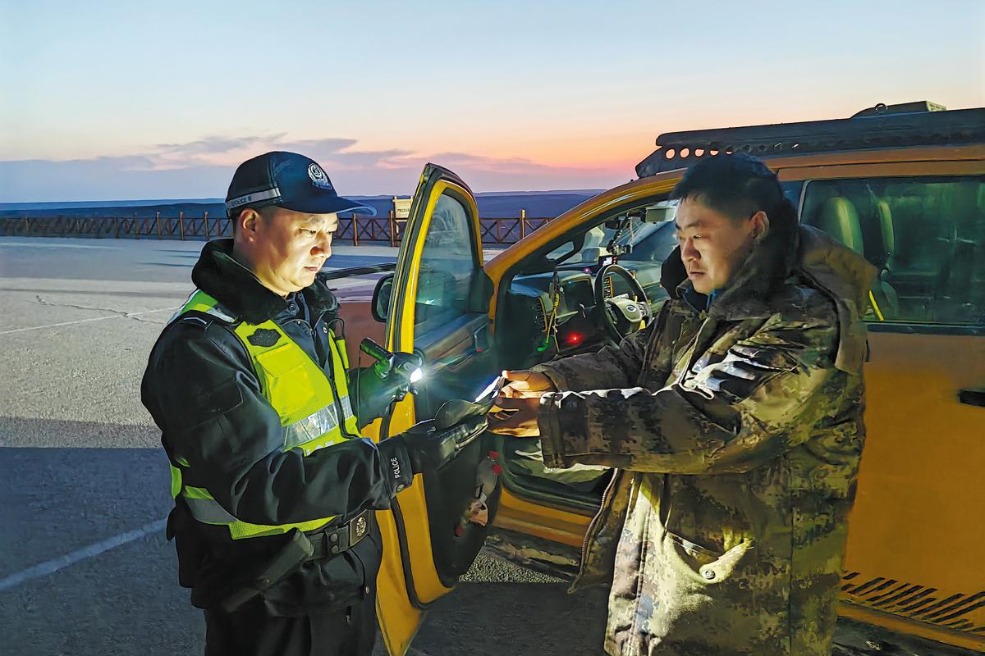Wolfpack always on hand to help whenever disaster strikes


Three weeks after returning from reporting on the post-earthquake relief efforts in Mandalay, Myanmar, my colleague and I headed to Hangzhou, Zhejiang province, to keep an appointment made upon our departure from the Southeast Asian country on April 7.
The Chinese Red Cross International Emergency Response Team's Wolfpack Emergency Response invited us to visit their base in Hangzhou's Fuyang district.
"When you return to the Wolfpack, you're coming home," said Wolfpack Emergency Response members, who shared food and lodging with the journalists in a sports stadium in Mandalay for nearly a week.
In the Wolfpack, Sun Zengcheng is called Little Captain Sun, while his teammate and father, Sun Huamao, is referred to as Old Sun.
Despite being younger than I am, Sun Zengcheng, born in 1995, has the look and experiences of a man much older.
After dinner, he told me quietly that due to the serious, risky and solemn nature of his work, he's experienced loss of a kind that he will always carry.
Influenced by his father, Sun Zengcheng gave up his chance to attend university and instead became a firefighter. Witnessing the passing of fellow comrades at the age of 23 filled his young body with an unusual mix of melancholy and maturity.
Such intense and emotive experiences on someone so young take their toll.
"Do you know what people do under extreme pressure? When I feel depressed, I go to Haidilao for a late-night meal. I've eaten at dozens of Haidilao hotpot restaurants late at night. I'd place a stuffed animal across from me, look at it, and talk to it," he said.
Although I couldn't fully understand, I tried to imagine his feelings. Haidilao, a renowned Chinese hotpot chain known for its 24-hour service and customer-centric approach, provides stuffed companions for solo diners. This unusual place became a spiritual sanctuary for this 30-year-old Wolfpack Emergency Rescue member.
At 2:20 pm on March 28, news of the earthquake in Myanmar arrived. Wolfpack Emergency Response activated its emergency action plan. Over 50 members eagerly volunteered, wishing to head to the disaster zone.
Sun Huamao and his son Sun Zengcheng both signed up immediately — this wasn't the first time the father-and-son duo had been to the front line together.
Equipped with demolition tools, optical life detectors, radar life detectors, thermal imaging devices, drones, medical supplies and other specialized rescue equipment, the 15-member Wolfpack team brought hope to Mandalay.
However, the extreme heat exceeding 40 C, paralyzed phone signals and language barriers posed significant challenges for the rescue team.
Commenting on coping with such pressures, vice-captain Chen Feng said: "There's no other way. It's all about strong willpower and long-term training."
Team member Shen Tingchong added: "The weather was scorching, but the needs of the victims are more urgent. We had to push through."
Rescue efforts after an earthquake follow the principle of the "golden 72 hours". By the time the Chinese Red Cross International Emergency Response Team arrived in Mandalay on the third day after the quake, much of this crucial period had elapsed. Despite this, the team didn't give up, working tirelessly and barely taking breaks to dig through the rubble.
"The instruments can't guarantee 100 percent accuracy, but what if there's a miracle?" one team member said.
Team members driving their rescue vehicles adorned with the Chinese Red Cross International Emergency Response Team flag were often guided by Chinese residents in Mandalay.
On April 2, the first batch of humanitarian aid from the Chinese Red Cross reached Mandalay and needed immediate distribution to those in need. This shipment included 2,000 family kits, 600 folding beds, 2,000 towels and 300 tents — over 4,900 pieces in total, with a volume of more than 600 cubic meters and weighing over 40 metric tons.
At this point, the exhausted rescuers, after prolonged efforts, sought help from Chinese residents in the city. Nearly 100 volunteers quickly arrived, efficiently unloading and neatly organizing the supplies.
At the temporary camp in the beleaguered stadium, amid water shortages and power outages, Chinese residents brought the rescuers mosquito-repelling mugwort and an ice machine, providing them with chilled water.
Witnessing all this, I struggled to express my emotions and could only record these scenes one by one.
On April 11, the rescue team received a letter of thanks from the Chinese embassy in Myanmar.
The letter stated: "Your continuous search and rescue efforts in the rubble, without regard for personal safety, showcased the professional qualities of China's civilian rescue forces and the spirit of international humanitarianism, expanding the reach of humanitarian concern and strengthening the emotional ties of 'people-to-people bonds and hearts as one' between China and Myanmar."
This letter, carrying with it the deep bond between China and Myanmar, is not only an acknowledgment of the Chinese Red Cross International Emergency Response Team but also a testament to further deepening the cooperation between China and Myanmar in building a community of shared future for mankind.
- Wolfpack always on hand to help whenever disaster strikes
- China stresses efforts to curb occurrence of serious accidents
- More young travelers opt for chills over thrills
- Never giving up hope
- Xizang promotes personal carbon accounts to support green finance
- Beijing to host inaugural World Humanoid Robot Games
















